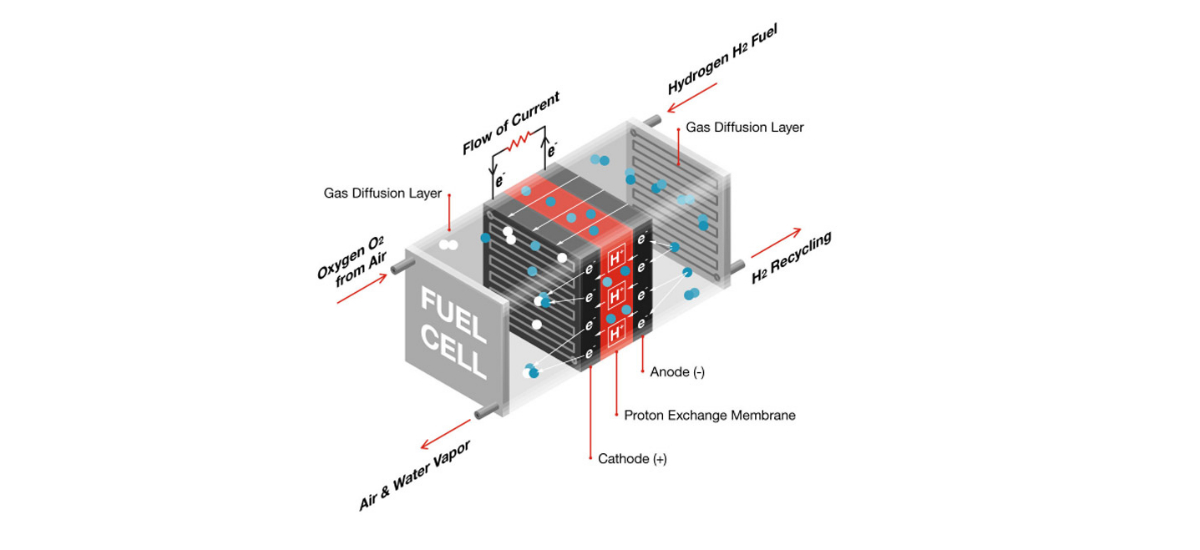
 Your Credit Estimate
Your Credit Estimate
 Your Credit
Your Credit
Your zip code helps us provide you with the most accurate vehicle pricing and vehicle availability.
We estimate your credit score to give you an idea of your monthly payments. To get an accurate payment amount, complete our credit application by clicking the Start Credit Application button below.
start credit application
Hydrogen fuel cell vehicles. What are they, and how do they affect the future of the automobile industry? We’ve discussed hydrogen fuel cell vehicles, and it would seem a lot of hydrogen fuel cell vehicles are being tested by the U.S. Army. But is it even practical? With auto brands like Toyota, Hyundai, Kia, and Mitsubishi working on vehicles based on this new alternative fuel, some would say so. Let’s review hydrogen fuel cells and their growing popularity in the auto industry.
This technology has been around for nearly 60 years, once powered by steel tanks containing hydrogen and oxygen, able to travel 150 miles without stopping. At the time, such technology wasn’t capable of handling such combustibles without an explosion, and the alternative fuel was pushed aside. Jump to modern times, and hydrogen fuel has gained popularity in recent years. General Motors supplied the U.S. Army with a hydrogen fuel cell Chevrolet Colorado in 2017, but consumer vehicles are also starting to show. Over the last few years, Honda, Toyota, and Hyundai have leased over 1000 hydrogen fuel cell vehicles. Kia Motors is aiming to be the next automaker to become an all-electric automaker, and talks of adapting a hydrogen fuel cell from the Hyundai Motor Group, we could see more hydrogen fuel cell vehicles for retail on the market in the coming years.
The most recent development has taken place amongst commercial businesses. Mitsubishi Fuso Truck and Bus Corp. (MFTBC), an Asia-based commercial vehicle manufacturer and a part of Daimler AG, a German multinational automotive corporation, recently announced that the company will begin the production of hydrogen fuel cell vehicles later this decade (late 2020s). Already having unveiled a concept, a light-duty fuel-cell truck, the Vision F-CELL, and the eCanter F-CELL presented in Kawasaki, a hydrogen-powered vehicle for commercial businesses is already in the works.
If the word eCanter sounds familiar, that’s because the original Canter and the eCanter are popular trucks amongst the MFTBC, used for short-distance routes and urban deliveries. The eCanter was the first all-electric commercial truck produced, with a GVW of 7.5 tons, and able to travel about 80 miles on a single charge. There are over 150 eCanters operating in Japan, Europe, and the U.S. today.
The eCanter, and now the eCanter F-Cell are part of the commitment by the MFTBC to abide by the Paris Agreement to work towards fighting climate change and adapting to the new changes to reduce greenhouse gases and CO2 emissions. A hydrogen fuel cell vehicle is seen as a neutral transportation vessel because it has little to no impact, without the need of fossil fuels or expensive materials for lithium batteries. We could see more of these vehicles in the auto market in the coming years, but there is a roadblock.
Hydrogen fueling stations would need to be developed and built-in mass. With only 34 hydrogen fueling stations in the U.S., many consumers will face the same fear of not being able to “fuel up” when the car runs low on hydrogen, much like the worry that purchasing an all-electric vehicle could become a problem if on a long road trip with no charging station in sight. However, if hydrogen fuel cell vehicles are the future, one automaker will find a way.
Stay up to date with all new car technology when you follow NowCar on social media.